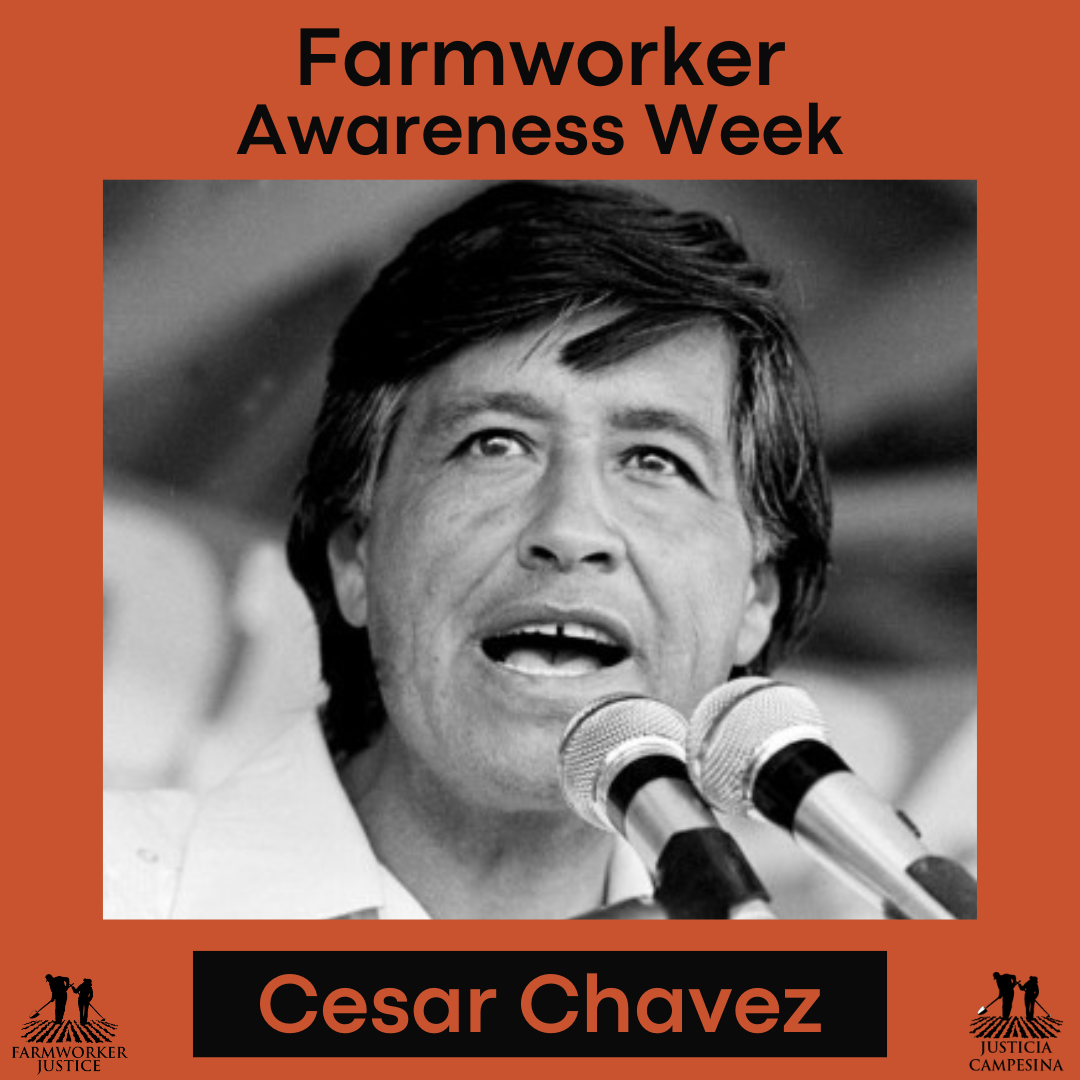Farmworker Icon Highlight: Cesar Chavez

It is not common where an individual is synonymous to a certain subject or occupation, but when that is the case, it is clear they are someone quite special.
From a very young age, Cesar had to face tough obstacles. In the last 1930, when Cesar wasn’t even a teenager, he and his family joined 300,000 others who migrated to California for work. 1 As soon as he finished the eighth grade, Cesar would drop out of school to go join his family in the fields.
In 1946, Cesar would join the U.S. Navy for two years, where he was placed in a segregated unit for the entirety of his service. 1 After his time in the military, Cesar would go back to work. In 1952, Cesar would become the grassroots organizer for the Community Service Organization. He became the national director during his time there, and would eventually leave in 1962.
Later that year, Cesar would use up all of his life’s savings to found the National Farm Workers Association. 1 He, alongside Dolores Huerta, would then lead the infamous Delano Grape Strike in 1965. This was a five year long strike that aimed to raise the working wage for farmworkers as well as give them the right to unionize.
Cesar modeled his nonviolent protests after Gandhi. He also took after the example of St. Francis of Assisi, a 13th century nobleman who gave up his material wealth and work on behalf of the poor. 1 This model would heavily influence Cesar’s actions, which included his widely known hunger strikes he took on three separate occasions during his life.
In 1966, after joining forces with the Agricultural Worker Organizing Committee, United Farm Workers was created. It would be just two years later, in 1968, when Cesar did his first hunger strike, where he went 25 days without any food and drank only water. 2 This was an attempt to stop the violence against strikers. This hunger strike received a lot of recognition, enough to even draw the attention of Robert F. Kennedy.
In 1975, California would pass the landmark Agricultural Labor Relations Act, which gave farmworkers the rights to unionize and negotiate better wages for labor workers. 1 This was a huge victory for Cesar and United Farm Workers. Soon after, Cesar’s attention would turn to banning pesticides. This would be a focus of Cesar’s until his eventual passing in 1993.
It can be stated that any compliment or acknowledgement towards Cesar Chavez is an understatement. For a man who fought for farmworkers, his name is associated with so much more than that.
1 History.com Editors. “Cesar Chavez”. History, 2009, https://www.history.com/topics/hispanic-history/cesar-chavez
2 Kim, Inga. “Today in history: Cesar Chavez began his 25-day water-only fast in Delano, Calif. on Feb. 15, 1968”. United Farm Workers, 7 Mar. 2017, https://ufw.org/today-history-cesar-chavez-began-25-day-water-fast-delano-calif-feb-11-1968/

